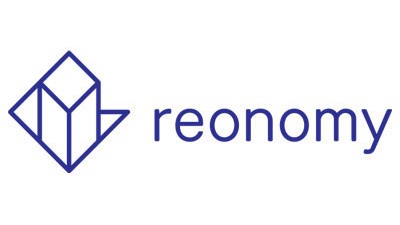As Property Technology Gains Prevalence, Some Brokers Fear Losing A Competitive Edge While Others Embrace New Tools

Accurate property information can make the difference between finding the perfect deal and watching it slip through the cracks. CRE brokers pride themselves on having the insider knowledge and relationships to secure a deal, but as commercial real estate technology promises to democratize data, professionals fear losing their competitive advantage.
As property information becomes publicly available and no longer carefully hidden under off-market referrals and alliances, CRE players can use that information to continue doing what they do best: building relationships with clients.
The San Francisco Bay Area remains among the four top CRE markets in the country, fueled by a housing shortage and the influx and growth of technology companies. The tight market and the speed of turnaround has made San Francisco brokers rely heavily on referrals and existing relationships to find properties before they hit the market.
“At least in San Francisco, it is much more a market of referral business than any other,” Transwestern Vice President Peter Conte said.
Trust, privacy and discreteness are essential tools in brokers' arsenals, allowing them to pursue owners before they have begun the selling process.
“Many buildings transact privately because it is such a hectic time in the marketplace,” Conte said.
Interested buyers, after seeing a property, will often make a private offer to the ownership even if it is not on the market. If the deal appeals to the owner, it is hard to refuse, Conte said.
Brokers employ different strategies across multiple sources to find these properties. Transwestern associate Sade Ghorban often cold calls and emails investors who might be interested in buying property types, building a database of potential clients and leads.
Internal research teams spend millions of dollars each year maintaining proprietary client relationship manager systems and databases in every major market. Brokerage houses protect this information like dragons on mountains of gold.
Proprietary data creates islands of information. An unwillingness to share, matched with the rapid pace of the market, can lead to inaccuracies in publicly accessible knowledge. CRE technology has attempted to unite these sources and provide not only verified information on commercial real estate but also the right people to contact. Ownership contacts, often buried behind LLCs, are a well-guarded secret, so much so that a broker’s knowledge base and secret-keeping have become a part of the hiring process, Conte said.

Reonomy, a New York-based data and analytics platform, combines local land records with exclusive data partnerships to bring together a verified listing of commercial properties and ownership, sales and mortgage history. Brokers can have immediate access to national information on property type, size, number of units, sale date, mortgage maturity date and other criteria in their target market.
The company has tracked 8 million mortgages and 20 million sales to date, and its regularly updated database spans over 100 million companies and 150 million industry members.
Far from putting brokers out of a job or devaluing proprietary networks, Reonomy’s data aggregation and enhancement aims to provide a deeper understanding of the CRE lending and ownership landscape, which benefits CRE players. Having a platform through which brokers can pinpoint opportunities through detailed searches and accurately follow the chain of title opens the door for increased productivity and successful deals. Organizational tools also allow users to label opportunities and prioritize which leads to follow, all within one platform rather than having to cycle through multiple tools.
“Harnessing valuable data and information has always been at the forefront of what the most successful commercial brokers do,” Reonomy CEO Richard Sarkis said. "Today, that same data is being gathered, cleaned and crunched by machines versus humans.”
Human interaction still remains a critical factor in commercial real estate. Building more accurate, detailed and centralized information is just another step in gaining a client’s trust, as brokers shift toward a more consultative role.
“Do I feel threatened by technology? Not yet. Do I think I am more efficient with my time and my ability to be more productive? Absolutely,” CBRE Senior Vice President Meade Boutwell said.
Rather than building a career on “asymmetric data advantages,” brokers can instead focus on how they most efficiently use their data.
“That’s the essence of Reonomy: to leverage our tech-driven data engine to provide brokers with the data they need and want on any property in a given market as a way to enable them to source more deals, more effectively service their clients and ultimately make more money faster,” Sarkis said.
To learn more about this Bisnow content partner, click here.

